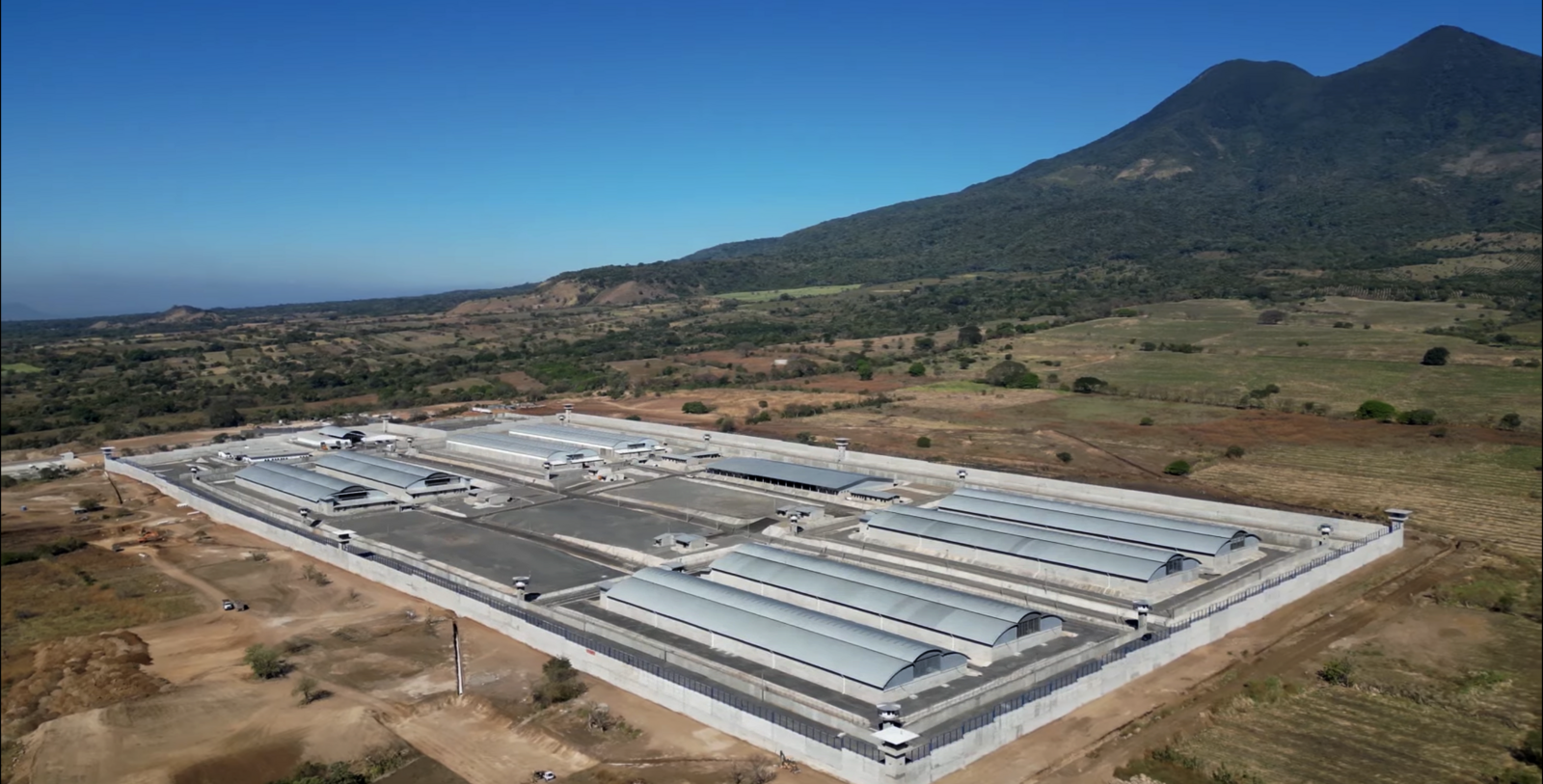El Salvador's Gang Crackdown Raises Questions About Justice
Bird-eye view of CECOT, a a maximum security prison located in Tecoluca, El Salvador.
El Salvador has a steep poverty rate and was labeled the world’s homicide capital, according to Foreign Policy. However, in the last two years, President Nayib Bukele implemented a vigorous crackdown on gangs that has resulted in the imprisonment or disappearance of numerous gang members, significantly lowering the country’s homicide rate while raising the incarceration rate.
El Salvador's crackdown began in March 2022, following a series of violent massacres, and has subsequently included a state of emergency with broad powers for law enforcement.
By 2023, government statistics indicated a remarkable 70 percent decrease in murder rates, making the country one of the safest in the region, per Reuters. The crackdown has also resulted in the highest incarceration rate per capita globally, with over 33,000 arrests made shortly after emergency measures were enacted, according to the Sentencing Project.
Despite these achievements, concerns from the United Nations and others have arisen regarding human rights abuses, particularly involving children. A Human Rights Watch Report indicated that children are often held alongside adults, violating both international and national laws.
Additionally, Bukele's administration has enacted laws that increase penalties for gang-related offenses and lower the age for prosecution to as young as 12, according to Human Rights First. The definition of unlawful association has expanded to include anyone believed to support criminal organizations, contributing to widespread arrests without clear criteria. Bukele’s grip over legislative proceedings has allowed his government to extend the state of emergency and enact BREAK legislation to strengthen its anti-gang campaign.

